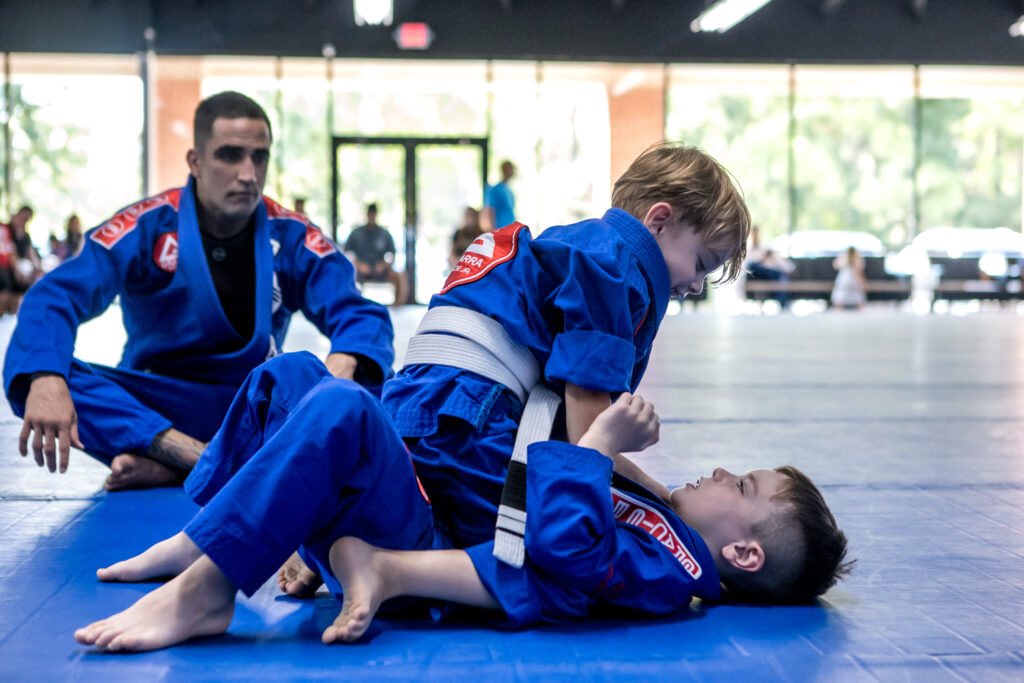
1. Physical Development:
Jiu-Jitsu is a discipline that, in addition to offering effective self-defense techniques, stands out for its positive impacts on children’s physical development. Regular classes provide a variety of physical activities that go beyond simply learning specific movements. Throughout the sessions, children participate in exercises that aim to improve different aspects of physical development.
Motor coordination is one of the central benefits of Jiu-Jitsu for children. The techniques require precision in movements, involving effective coordination between the upper and lower limbs. This not only develops fine motor skills, but also improves body awareness, allowing children to better understand and control their bodies.
Another relevant point is the development of flexibility. The specific positions and movements of Jiu-Jitsu encourage range of motion in multiple joints, contributing to increased flexibility over time. This flexibility is not only crucial for efficient execution of techniques, but it also promotes healthier posture and prevents injuries.
Furthermore, Jiu-Jitsu is an excellent way to improve physical resistance. Training sessions involve a combination of aerobic and anaerobic exercises, contributing to the improvement of cardiovascular and muscular resistance. Constant practice helps children develop greater endurance, allowing them to participate in physical activities for longer periods of time.
Specific Jiu-Jitsu movements, such as rolls, takedowns and escapes, contribute to the development of muscular strength. Practitioners often use the muscles of the core, upper and lower limbs to perform techniques effectively. This not only promotes muscle toning, but also strengthens muscle groups critical to overall physical health.
In addition to these benefits, regular Jiu-Jitsu practice also contributes to improving balance. The need to maintain specific positions, especially during floor techniques, requires refined balance. Developing this skill is crucial not only for success on the mat, but also for preventing falls and injuries outside of the training environment.
When considering physical development, Jiu-Jitsu offers a holistic approach that goes beyond simple physical conditioning. It provides a solid foundation for children’s healthy growth, addressing aspects such as motor coordination, flexibility, resistance, muscular strength and balance.
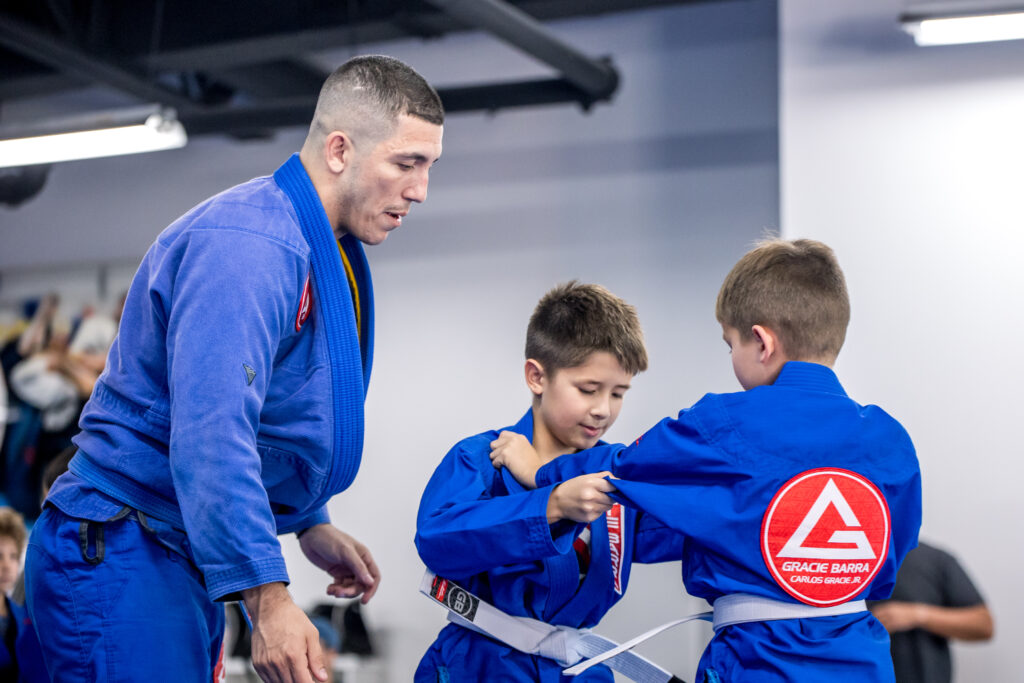
2. Focus and Discipline:
Jiu-Jitsu is not just a physical martial art; It is a discipline that requires mental focus and discipline. Classes provide a structured environment where children learn not only movements and techniques, but also the importance of focus and discipline for success on the mat.
During Jiu-Jitsu classes, children are challenged to focus on detailed instructions and execute precise movements. Attention is directed to each movement, encouraging a high level of concentration. This development of focus is transferable to other areas of life, such as school, where the ability to concentrate on academic tasks is crucial to success.
In addition to focus, Jiu-Jitsu teaches discipline effectively. Children learn to follow specific mat rules, respect their instructors and peers, and understand that discipline is fundamental to progress in practice. This discipline is a valuable skill that is reflected in your everyday behavior, promoting responsibility and respect for established authorities and norms.
The need to practice regularly to improve Jiu-Jitsu skills teaches children the importance of consistency and commitment. These are fundamental elements for success in any endeavor in life, and the discipline acquired on the mat contributes significantly to the development of positive habits.
By incorporating focus and discipline into training, Jiu-Jitsu not only prepares children to face the specific challenges of the martial art, but also lays a solid foundation for mental and behavioral development throughout their lives.
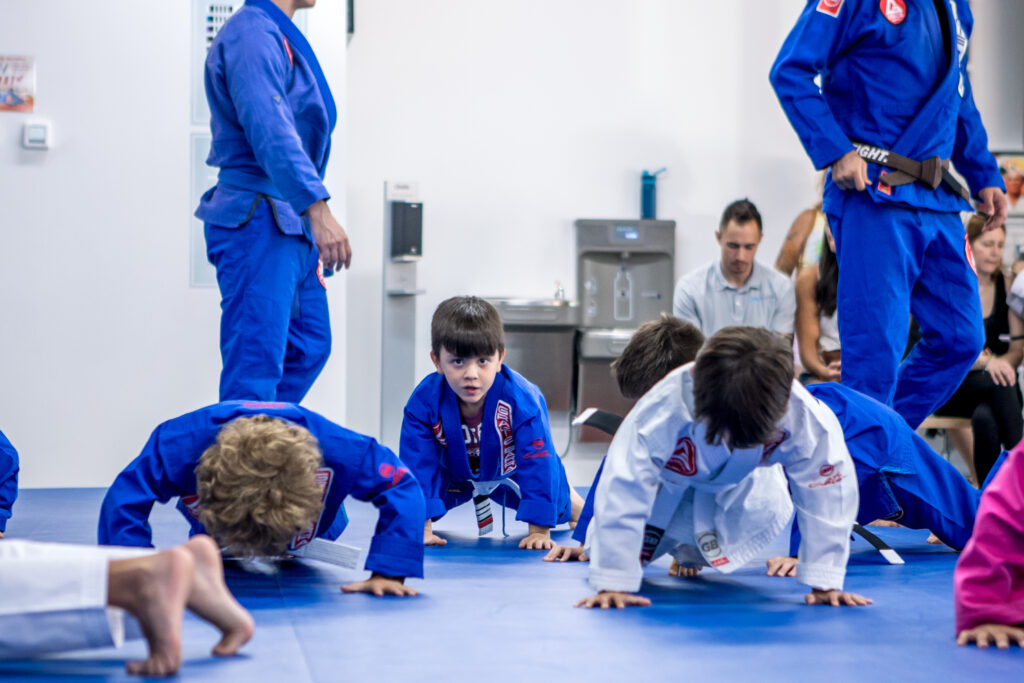
3. Mental Development:
Jiu-Jitsu is not just a physical sport; It is a mentally challenging activity that benefits children’s cognitive development. During classes, practitioners are exposed to a variety of techniques, strategies and situations that require quick and effective decision-making.
By learning new techniques and movements, children stimulate their cognitive functions, improving memory and learning capacity. Regular Jiu-Jitsu practice requires the assimilation of a variety of movements and sequences, promoting an agile and adaptive mindset.
Problem solving is an intrinsic part of Jiu-Jitsu. During training, children are faced with different challenges, such as an opponent’s resistance or the need to find a strategic way out of an unfavorable position. These situations encourage the search for creative solutions, developing children’s problem-solving skills.
Furthermore, Jiu-Jitsu teaches children to accept and learn from mistakes. When a technique is not performed correctly, the practitioner has the opportunity to analyze what went wrong and how to improve. This cycle of trial and error is essential for developing a resilient mindset, where obstacles are seen as learning opportunities.
Jiu-Jitsu, therefore, contributes significantly to children’s mental development, preparing them to face complex challenges, make quick decisions and embrace continuous learning throughout their lives.
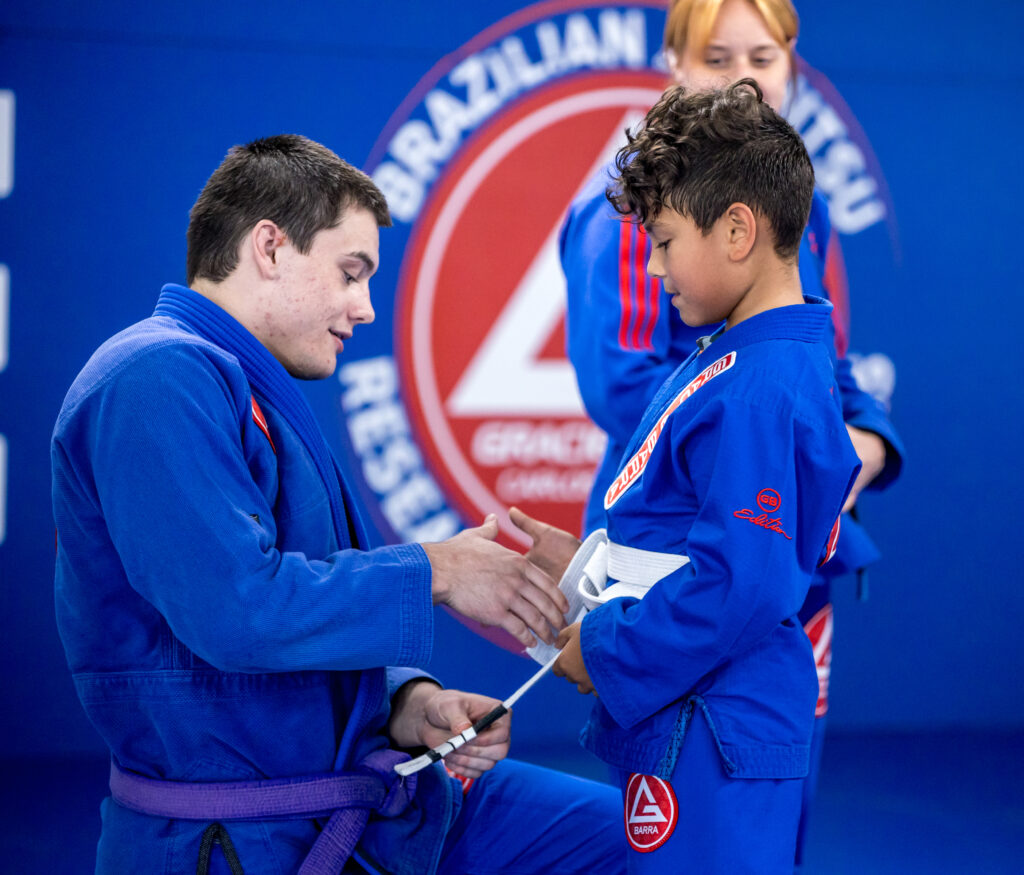
4. Respect and Empathy:
Jiu-Jitsu is a practice that emphasizes mutual respect between practitioners. From the beginning, children are taught to treat their peers, instructors, and opponents with respect and courtesy. This respectful environment is fundamental to creating a safe and positive space on the mat.
During classes, children learn not only to respect the abilities of their peers, but also to value individual differences. Jiu-Jitsu is an inclusive martial art that embraces practitioners of different ages, sizes and abilities. This diverse environment encourages children to respect and appreciate the unique characteristics of each training partner.
In addition to respect, Jiu-Jitsu promotes empathy. Collaborative classes and drills often require children to understand the perspectives and needs of their peers. This creates an environment where empathy is cultivated, making children more aware of the emotions and experiences of others.
These skills of respect and empathy are not limited to the mat. They are transferable to everyday life, promoting healthy and constructive relationships in different social contexts. Jiu-Jitsu, therefore, not only teaches fighting techniques, but also cultivates fundamental values that contribute to children’s social and emotional development.
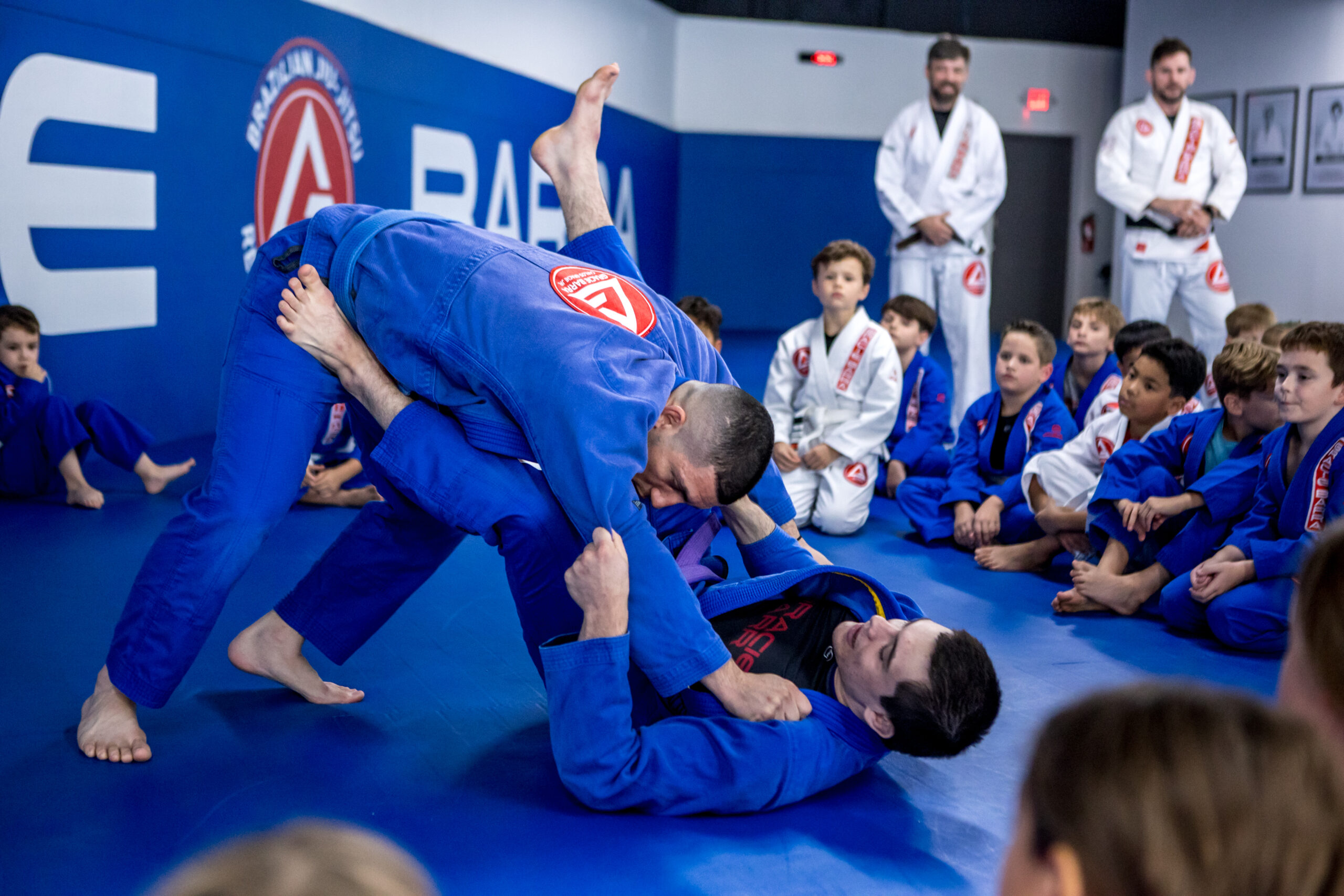
5. Self-Confidence and Self-Control:
Self-confidence is a fundamental quality that Jiu-Jitsu helps develop in children. By overcoming physical and mental challenges during training, children begin to believe in their abilities and capabilities. Each new technique learned and each degree achieved are tangible achievements that contribute to building a positive self-image.
Jiu-Jitsu also teaches self-control, a crucial life skill. During training, children learn to manage their emotions and reactions, especially in simulated combat situations. This self-control not only improves performance on the mat, but also translates into more balanced behaviors off the mat.
Furthermore, Jiu-Jitsu provides an environment where children learn to deal with pressure. When facing challenges and opponents during training, they develop the ability to remain calm in stressful situations. This skill is invaluable not only for performance in sport, but also for resilience in the face of life’s challenges.
Therefore, Jiu-Jitsu not only strengthens the body, but also the mind, promoting self-confidence and self-control, which are fundamental pillars for children’s healthy emotional development.
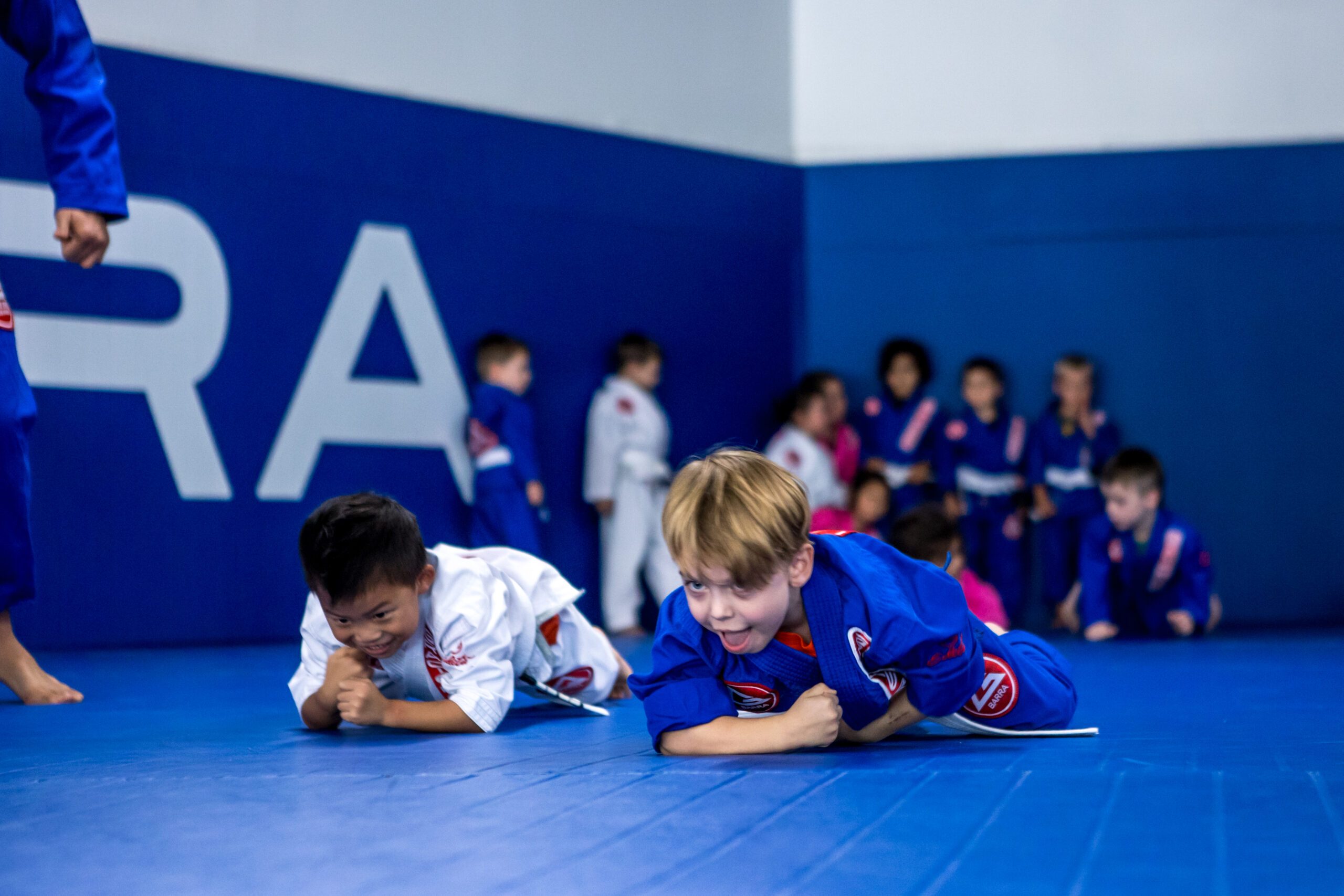
6. Socialization and Teamwork:
Jiu-Jitsu is much more than an individual practice; It is a social activity that promotes interaction and teamwork among children. During classes and training, students have the opportunity to interact, form friendships and develop essential social skills.
The collaborative nature of Jiu-Jitsu classes is evident in training, where practitioners often work together to improve techniques, perform exercises and progress together. This environment favors the construction of positive interpersonal relationships, as children learn to trust each other and support each other.
Teamwork is a crucial skill that goes beyond the mat. As children engage in buddy exercises and drills, they learn to communicate effectively, understand their partner’s needs, and work together to achieve common goals. These skills are transferable to various situations in life, from school projects to extracurricular activities and, eventually, to the professional environment.
Furthermore, socialization in Jiu-Jitsu is enriched by the diversity present in the gyms. Children of different backgrounds, ages and skill levels come together on the mat, providing a multicultural environment. This promotes respect for diversity and expands children’s social circle, preparing them for a healthy coexistence in an increasingly plural society.
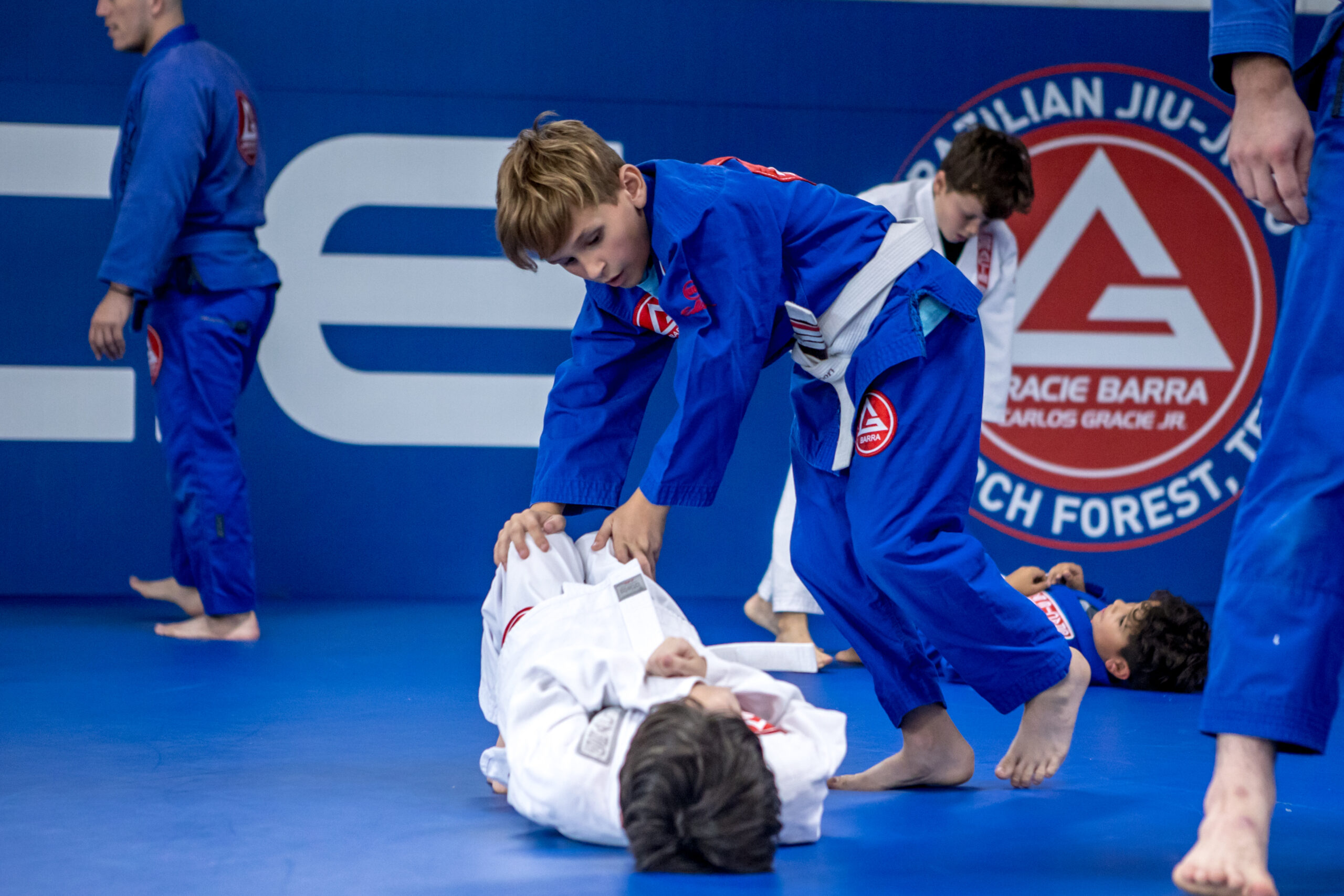
7. Learning Self-Defense Skills:
A crucial, often underestimated part of Jiu-Jitsu is learning practical self-defense skills. Although the training environment is controlled and safe, the techniques taught have real-world applications in personal protection. Children learn to defend themselves effectively in confrontational situations, which is especially valuable in a world where self-defense can be a useful skill.
Jiu-Jitsu, unlike some other martial arts, is especially effective for children because it emphasizes techniques that allow a lighter, less athletic practitioner to overcome a larger, stronger opponent. This provides a sense of capability and confidence as children realize they can protect themselves regardless of their size or physical strength.
Additionally, learning self-defense skills in Jiu-Jitsu is accompanied by an emphasis on responsibility. Children are taught to use their skills only when necessary, reinforcing the principle that self-defense should be a last resort. This promotes a balanced understanding of the power that comes with knowing self-defense techniques.
Ultimately, Jiu-Jitsu not only provides a valuable set of self-defense skills, but it also cultivates a responsible and respectful mindset regarding the use of these skills.
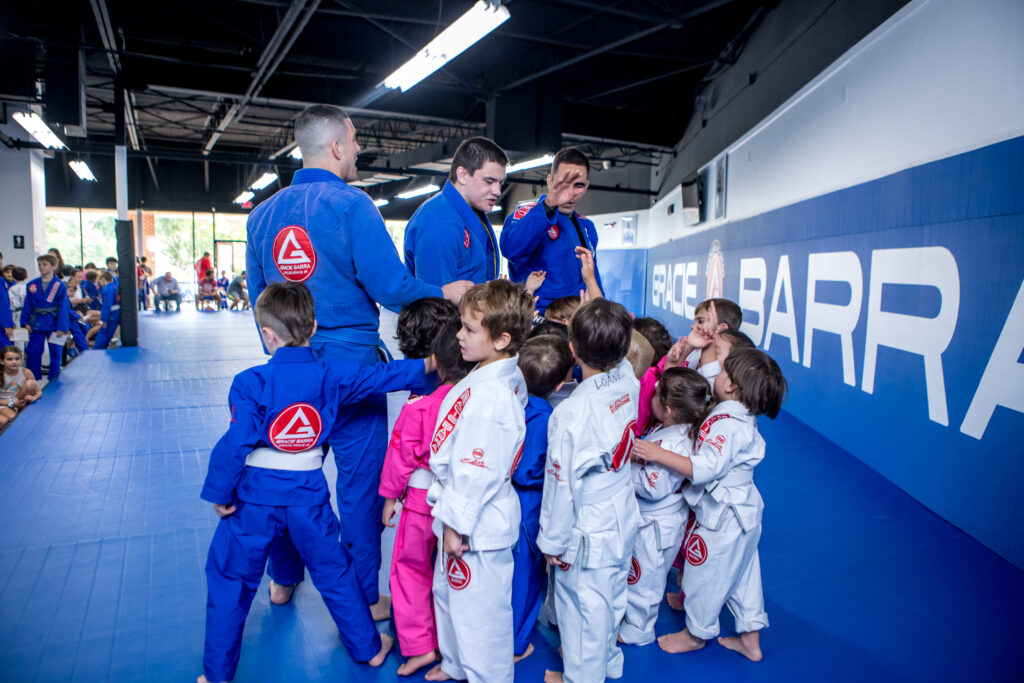
8. Development of Patience and Persistence:
Jiu-Jitsu is a journey that teaches children the importance of patience and persistence. Progress in the martial art does not happen overnight, and each child advances at their own pace. This understanding of the need for time and effort contributes to the development of a perseverance mindset.
Every technique learned, every mistake made and every success achieved in Jiu-Jitsu are integral parts of the learning process. Children learn to value the journey, recognizing that true growth comes through constant practice and gradually overcoming challenges.
This patience is a transferable skill to other areas of life. Children who practice Jiu-Jitsu learn to face difficulties with a patient mindset, understanding that mastering any skill takes dedicated time and effort.
Persistence is a quality that is constantly reinforced in Jiu-Jitsu. When facing challenging techniques or dealing with skilled opponents, children learn that success often requires repeated attempts and a determined approach. This persistent mindset is invaluable in facing challenges that arise in everyday life.
Jiu-Jitsu, by emphasizing patience and persistence, not only contributes to success on the mat, but also equips children with a resilient and positive mindset in the face of challenges in any area of their lives.
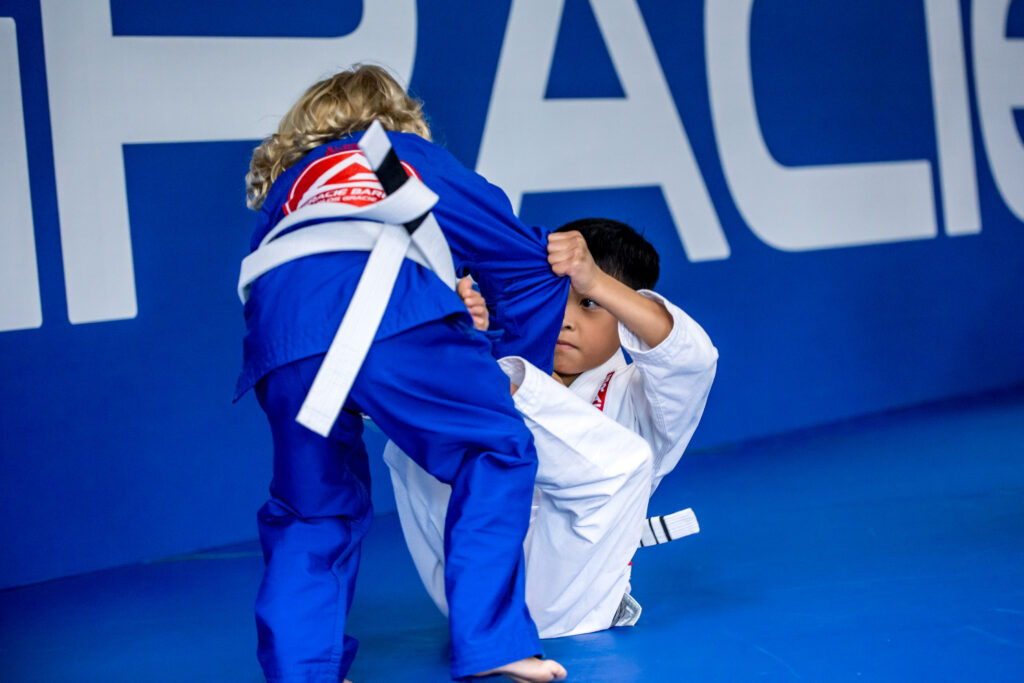
9. Promoting an Active Lifestyle:
In a world where a sedentary lifestyle is a growing concern, Jiu-Jitsu emerges as an engaging and healthy alternative to promote an active lifestyle in children. Regular practice of this martial art not only offers physical benefits, but also instigates a positive change in daily habits, moving people away from a sedentary lifestyle.
The dynamic nature of Jiu-Jitsu, which combines ground movements and projection techniques, provides effective cardiovascular training. Constant practice not only strengthens the cardiovascular system, but also improves respiratory capacity, contributing to children’s overall respiratory health.
Additionally, Jiu-Jitsu involves a variety of functional movements that challenge different muscle groups. This not only tones and strengthens your muscles, but also promotes flexibility and agility. The combination of aerobic and anaerobic exercises during training contributes to comprehensive physical conditioning.
By regularly participating in Jiu-Jitsu classes, children are encouraged to adopt an active lifestyle off the mat. Awareness of the value of movement and physical activity is cultivated from an early age, providing a solid foundation for healthy habits throughout life.
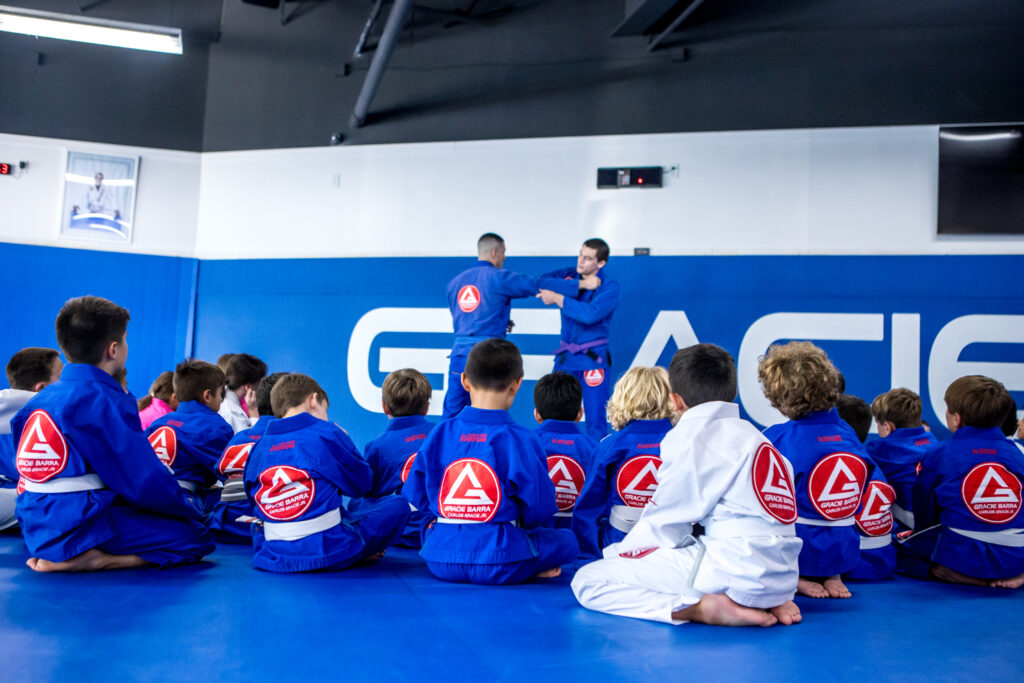
10. Encouragement of Creativity and Individual Expression:
Although Jiu-Jitsu is a discipline with specific rules and established techniques, it also offers room for individual expression and creativity. Children are encouraged to adapt the techniques to their own abilities and styles, providing a personalized experience within the context of the rules established by the practice.
This stimulus to creativity is not limited to the execution of techniques. During training sessions, children are challenged to find innovative solutions to different situations. Problem solving in the context of Jiu-Jitsu not only improves fighting skills, but also stimulates creativity and critical thinking.
Individual expression is also encouraged in the way children approach training. Each child has their own style and approach to practice, allowing them to explore and develop their identity within the context of Jiu-Jitsu. This encouragement of individuality contributes to a diverse and inclusive environment.
The ability to express creativity and individuality is a valuable quality that transcends the fighting skills learned on the mat. Children who practice Jiu-Jitsu develop a balanced approach to learning, where they follow established rules but also have space to explore and express their own perspectives.



